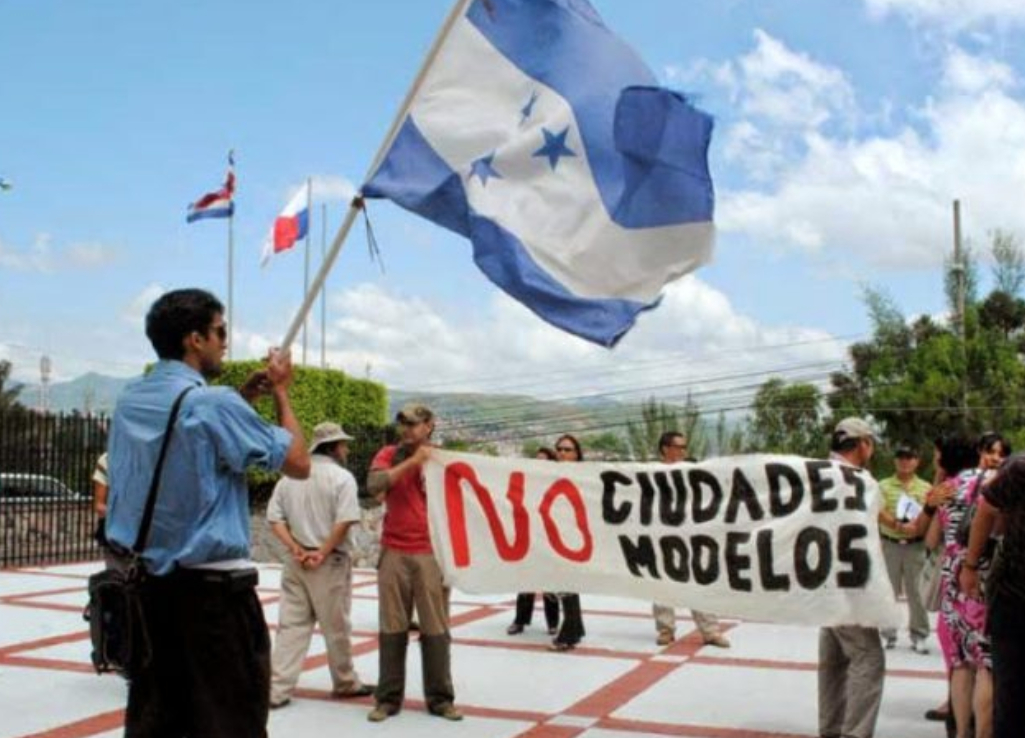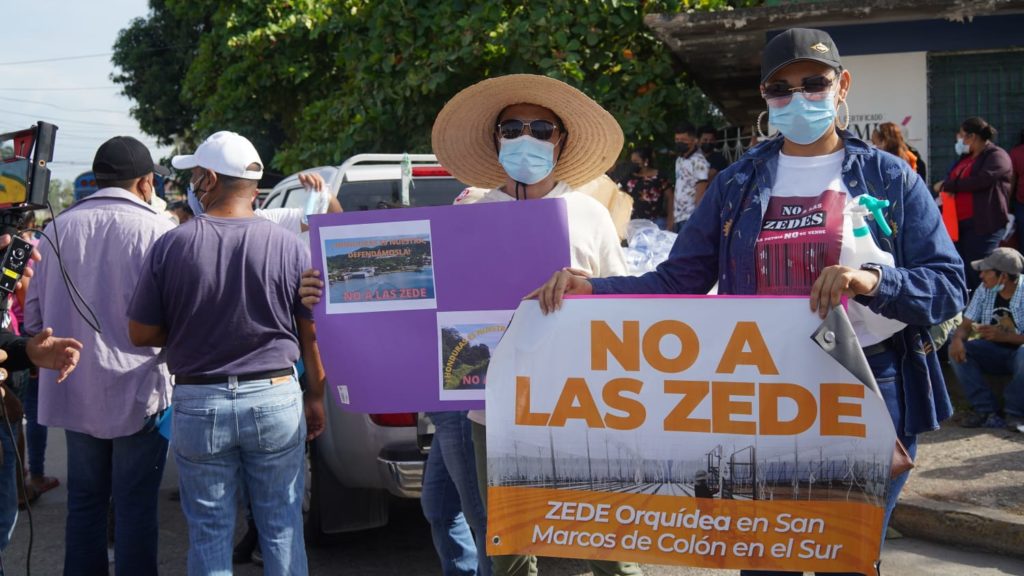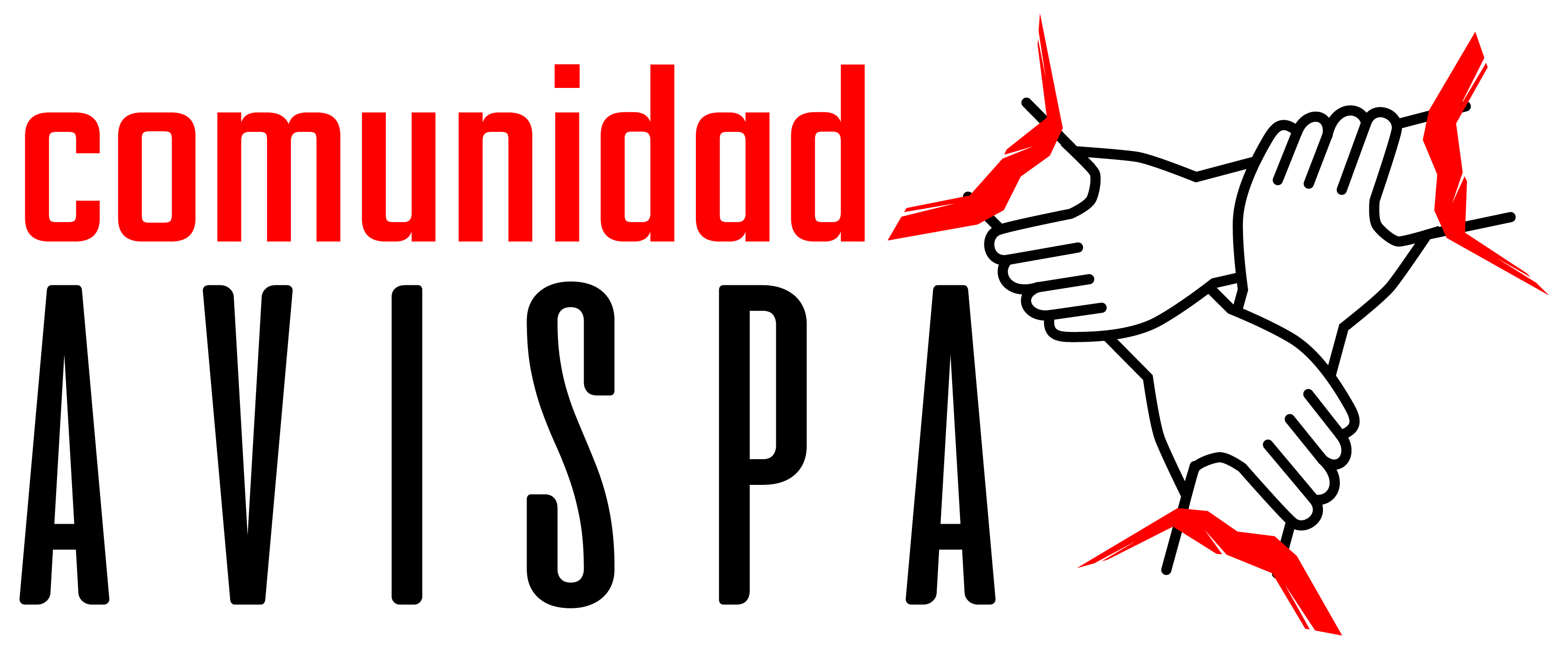This past October, United States Senators Ben Cardin and Bill Hagerty sent a letter to the U.S. State Department and Secretary of State, Anthony Blinken, to issue a complaint about the Honduran government’s repeal, in April 2022, of the law that allowed the operation of Economic Development and Employment Zones (ZEDEs) in Central America.
The fundamental law allowed for the creation of special zones that operate autonomously from the Honduran government. According to proponents of the law, investors could implement their own administrative systems, governance and laws in the special zones, with the purpose of creating conditions to attract international investments.
The Senators’ letter argues that U.S. investments in Central America “will help alleviate the poverty that encourages illegal migration to the United States” and pressure the Honduran government to respect the “50-year legal stability guarantee that protects U.S. investments,” established in the Dominican Republic-Central America-United States Free Trade Agreement (CAFTA-DR).
It may interest you – Despite Biden’s promises, mistreatment towards migrant children continues
In contrast, since the passing of the law in 2013, wide sectors of Honduran society have organized against its operation. According to the organization Alternative for Community and Environmental Claims of Honduras (ARCAH), based on more than 70 open town hall assemblies, ZEDES-free municipalities were declared in diverse departments where mobilization for the defense of territory led to the refusal of their installation.
In a response letter to the U.S. Senators, ARCAH maintained that the ZEDES “are a project of aggression against the sovereignty” of Central America, for which the Senators’ petition constitutes “a deeply meddlesome proposal, disrespectful of the internal affairs of the State of Honduras, and only invites the perpetuity of crimes committed by the ZEDES, which include, in the case of their technical secretaries (equivalent to a governor or mayor), for example, the crime of treason.”

The Honduran organization affirms that for more than a decade, “the people of Honduras, even in a period of narco-dictatorship, confronted the ZEDES in a manner that is organized, coherent, appropriate, dignified, legitimate manner, and in full use of their rights,” before the transnationals overtook the Honduran government “to install governance laboratories, without consultation, and it could not be otherwise - what people would consciously say ‘yes’ to the partial or total surrender of their country?”
Pressure
The Senators’ initiative is not the first complaint of U.S. officials over the repeal of the ZEDES. In July of this year, the U.S. Department of State issued an Investment Climate Statement on Honduras, which thoroughly condemned the law’s repeal.
“Their elimination raised concerns in the business community about the government’s commitment to commercial stability and the rule of law”, declares the report, which questions the attitude of Xiomara Castro’s government since it did not try to implement reforms or seek dialogue with ZEDE investors.
It may interest you – In Honduras, Chortí Maya cemetery is swallowed up by Aura Minerals
According to the department responsible for U.S. foreign policy, the measure contributed to uncertainty about the Honduran government’s commitment to investment protections required by agreements such as the Bilateral Investment Treaty (BIT) between the United States and Honduras and CAFTA-DR.
In response, ARCAH assures that none of these guarantees apply if the sovereignty of Honduras is put at risk, since the Senators, “ignore that the ZEDES fundamental law authorized ZEDES to expropriate Honduran territories.” They also add that “not one Free Trade Agreement applies to the ZEDES, as they are incompatible with the Republic of Honduras’s Constitution, and national and international human rights standards.”

On the contrary, the organization, that co-founded the National Movement against the ZEDES in June of 2021, affirms that these projects have not invested in Honduras, “but have unleashed violence and attacks, including against ARCAH.”
Attacks
Christopher Castillo, general coordinator of ARCAH, has denounced threats against him by police, as well as by board members and executives of different ZEDES projects.
According to a statement from the Peoples’ Human Rights Observatory, the attacks occur in the context of the struggle against the ZEDES, particularly those known as Ciudad Morazán and Próspera, that “ignore the popular decision to repeal the law, which was achieved through the popular struggle of communities and organizations. Therefore, the ZEDES do not want to recognize it, and instead threaten with violent actions seeking to settle in the territories.”
One of the recent attacks occurred at the end of October when ARCAH members were peacefully protesting against Ciudad Morazán, since it is one of the ZEDES projects that has remained in operation despite the repeal of the law that supported them. In addition, there have been threats against the ARCAH coordinator by the founder of Ciudad Morazán, Massimo Mazzone, and other members Jorge Colindres and Carlos Fortín.
Given these facts, Christopher Castillo demanded that Honduran authorities effectively repeal the ZEDES and before local media he insisted that “we cannot allow these businessmen to come only to impose projects that are not development, that are contrary to the will of the people and furthermore that endanger the people.”


